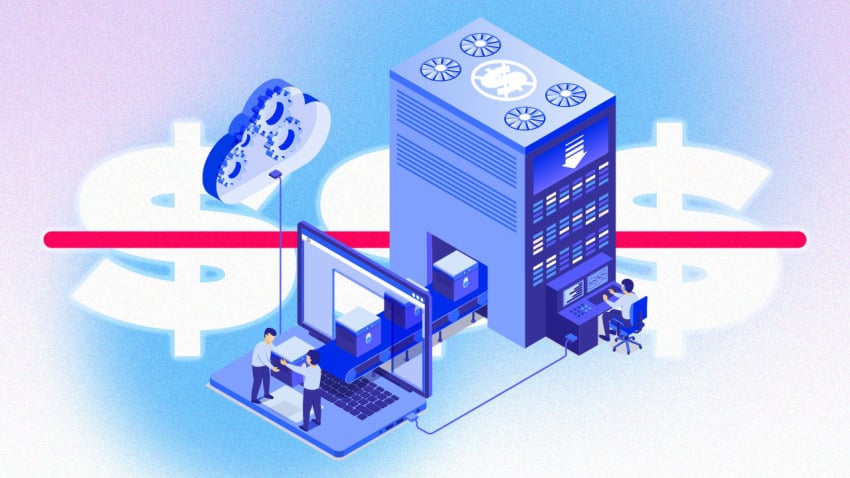In today’s digital age, having an online presence is crucial for businesses and individuals alike. One of the key components of establishing an online presence is through hosting a website. However, not everyone has the budget to invest in a paid hosting service. This is where free hosting options come into play.
Hosting free services offer users the opportunity to create and host their websites without paying any fees. While this may seem like a great option for those on a tight budget, it’s important to understand the benefits and limitations that come with hosting free. In this article, we’ll dive into the world of free hosting and explore its advantages, disadvantages, and everything in between.
Understanding Hosting Free
Before we delve into the specifics of hosting free, let’s first define what it actually means. Free hosting refers to the practice of using a hosting service without any monetary cost. These types of hosting services are usually provided by companies or organizations that have excess server space and want to make use of it.
It’s important to note that hosting free comes in two forms – shared hosting and self-hosting. Shared hosting involves multiple websites being hosted on the same server, while self-hosting refers to hosting your own website on your own server.
Now that we have a better understanding of what free hosting entails, let’s take a look at the benefits and limitations of this type of hosting.

Free hosting involves utilizing a hosting service without incurring any financial expenses
Benefits of Hosting Free
- No Cost Involved
The most obvious advantage of free hosting is the fact that there is no cost involved. This is especially beneficial for individuals or small businesses who may not have the budget to invest in a paid hosting service. With free hosting, you can create and host your website without spending a single penny.
- Easy to Set Up and Use
Most hosting free services provide user-friendly platforms, making it easy for even those with limited technical knowledge to set up and manage their website. This is beneficial for those who are new to the world of websites and hosting as they can easily create and maintain their online presence without any hassle.
- No Long-Term Commitment
With hosting free, users have the flexibility to switch to a paid service at any time. This means there is no long-term commitment involved, and you can upgrade to a paid hosting service when your budget allows or when your website grows and requires more resources.
- Ideal for Personal Websites
If you’re looking to create a personal website or blog, free hosting can be a great option. These types of websites usually don’t require a lot of resources and can function well on a free hosting plan. Plus, since personal websites generally have lower traffic compared to business websites, the limitations of free hosting may not be a major issue.
Limitations of Hosting Free
- Limited Storage and Bandwidth
One of the biggest drawbacks of free hosting is the limited storage and bandwidth offered. Most hosting free services provide a very small amount of storage space and bandwidth, which can severely limit the functionality and performance of your website. This can be a major issue if you have a large website with high volumes of traffic.

One significant disadvantage of free hosting is the restricted amount of storage and bandwidth provided
- Lack of Customization and Control
Free hosting services often come with pre-designed templates and limited customization options. This means that you may not have full control over the design and functionality of your website. Additionally, you may not have access to advanced features such as databases or email accounts, which can hinder the growth and development of your website.
- Advertisements on Your Website
Since free hosting services need to make money somehow, they often display advertisements on your website. This can be a major turn-off for visitors and can negatively impact the credibility of your website. Plus, these ads may not always be relevant to your content, which can be frustrating for your audience.
- Limited Support
With hosting free, don’t expect to receive the same level of support as you would with a paid service. Since these services are usually offered for free, there is no guarantee that you will receive timely and efficient support when faced with technical issues. This can be frustrating and can cause major disruptions to your website.
- Reliability Issues
Free hosting services are often not as reliable as paid hosting services. This means that your website may experience frequent downtime, which can result in lost traffic and potential customers. Additionally, if the hosting provider goes out of business or decides to discontinue their hosting free service, your website could be taken offline without warning.
Alternatives to Hosting Free
While free hosting may seem like an attractive option, especially for those on a tight budget, it’s important to consider alternative options. These alternatives may require a small investment, but they come with more features and resources, making them a better long-term solution.

These alternatives might involve a modest investment, yet they offer enhanced features and resources, presenting a superior long-term solution
1. Shared Hosting
Shared hosting is a type of hosting where multiple websites share the same server and its resources. This option is ideal for those who want to upgrade from free hosting but still have a limited budget. With shared hosting, you get more storage space, bandwidth, and features compared to hosting free, but at a lower cost than other types of hosting.
2. VPS Hosting
VPS (Virtual Private Server) hosting involves virtualization technology that partitions a physical server into multiple virtual servers. Unlike shared hosting, each website has its own dedicated resources, making it more reliable and secure. Plus, VPS hosting offers more customization options and control compared to shared hosting.
3. Cloud Hosting
Cloud hosting is a relatively new form of hosting that utilizes multiple virtual servers to host a website. This means that resources are not limited to one physical server, making it highly scalable and reliable. It also offers more control and customization options compared to shared hosting.
4. Self-Hosting
Self-hosting involves buying your own server and hosting your website on it. This option gives you complete control over your website and its resources, but it also requires a significant investment upfront. Additionally, self-hosting requires technical knowledge and skills to set up and maintain the server, making it less feasible for those with limited technical expertise.
Tips for Choosing a Hosting Free Service
If you’ve weighed the benefits and limitations of free hosting and have decided that it’s the best option for you, there are a few things to keep in mind when choosing a hosting free service. This will ensure that you choose a reliable and trustworthy provider.
- Check the Reputation of the Provider
Research the hosting provider and read reviews from other users to get an idea of their reputation. This will give you insight into their reliability, features, and support.
- Read the Terms and Conditions
Make sure to carefully read the terms and conditions of the hosting service before signing up. Look for any hidden costs or restrictions that may not be apparent on the surface.
- Understand the Limitations
As mentioned earlier, free hosting comes with limitations. Make sure to understand these limitations and assess whether they will hinder the growth and development of your website.
- Look for Scalability Options
While free hosting may be suitable for a small website, it may not be enough once your website grows. Look for hosts that offer scalability options so you can easily upgrade to a paid plan when needed.
- Consider Customer Support
Even though free hosting services may not offer the same level of support as paid services, it’s still important to assess the quality of support they provide. Look for companies that offer timely and efficient customer support to ensure your website runs smoothly.
The Risks of Hosting Free
While free hosting may seem like an affordable and convenient option, it’s important to understand the risks involved. These risks can have a major impact on your website and its performance.
1. Security Vulnerabilities
Free hosting services often lack the same level of security measures as paid services. This makes them vulnerable to cyber attacks and hacking attempts. Additionally, since you are sharing a server with other websites, if one of the sites on the server gets hacked, it could affect your website as well.
2. Poor Performance
Due to limited resources and frequent downtime, free hosting services often result in poor website performance. This can affect user experience and lead to a decrease in traffic and potential customers.
3. No Backup Options
Most free hosting services do not offer backup options, meaning that if your website crashes or gets hacked, you may lose all your data. This can be devastating for businesses and individuals who rely on their website for income or personal branding.
4. Limited Control and Ownership
With free hosting services, you may not have full control over your website. This can lead to issues such as restrictions on content or design, and even the risk of losing your website if the hosting provider decides to discontinue their service.
The Importance of Investing in Hosting Free
While hosting free may seem like an attractive option, especially for those on a tight budget, investing in a paid hosting service has numerous benefits that outweigh the minimal cost.
1. Improved Website Performance
Paid hosting services offer more resources and better performance compared to free hosting. This means faster loading times, less downtime, and a better overall user experience for your visitors.
2. Better Security Measures
Paid hosting services often have advanced security measures in place to protect your website from cyber threats. This gives you peace of mind knowing that your website is safe and secure.
3. More Control and Customization Options
Investing in a paid hosting service gives you more control over your website and its resources. You can customize your website to fit your specific needs and have access to advanced features that may not be available with free hosting.
4. Professional Image
Having a paid hosting service gives your website a more professional image. This can increase the credibility of your website and make it more attractive to potential customers.
Conclusion
In conclusion, hosting free has its advantages and limitations. While it may seem like an appealing option for those on a tight budget, it’s important to understand the risks involved. Before choosing a hosting free service, carefully assess your needs and consider alternative options such as shared, VPS, or cloud hosting. Investing in a paid hosting service may require a small investment, but the benefits far outweigh the minimal cost. Your website is the face of your online presence, and it’s important to give it the proper attention and resources it deserves.



